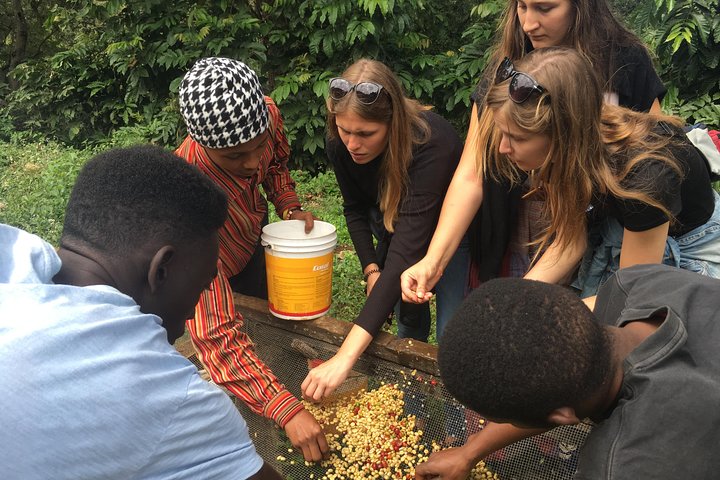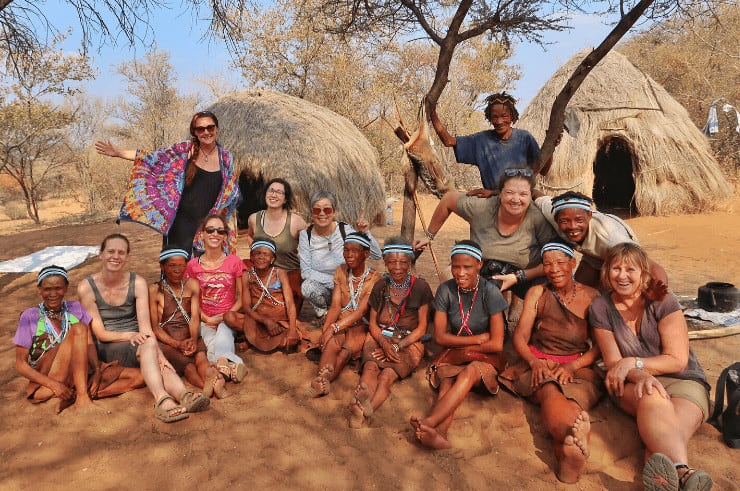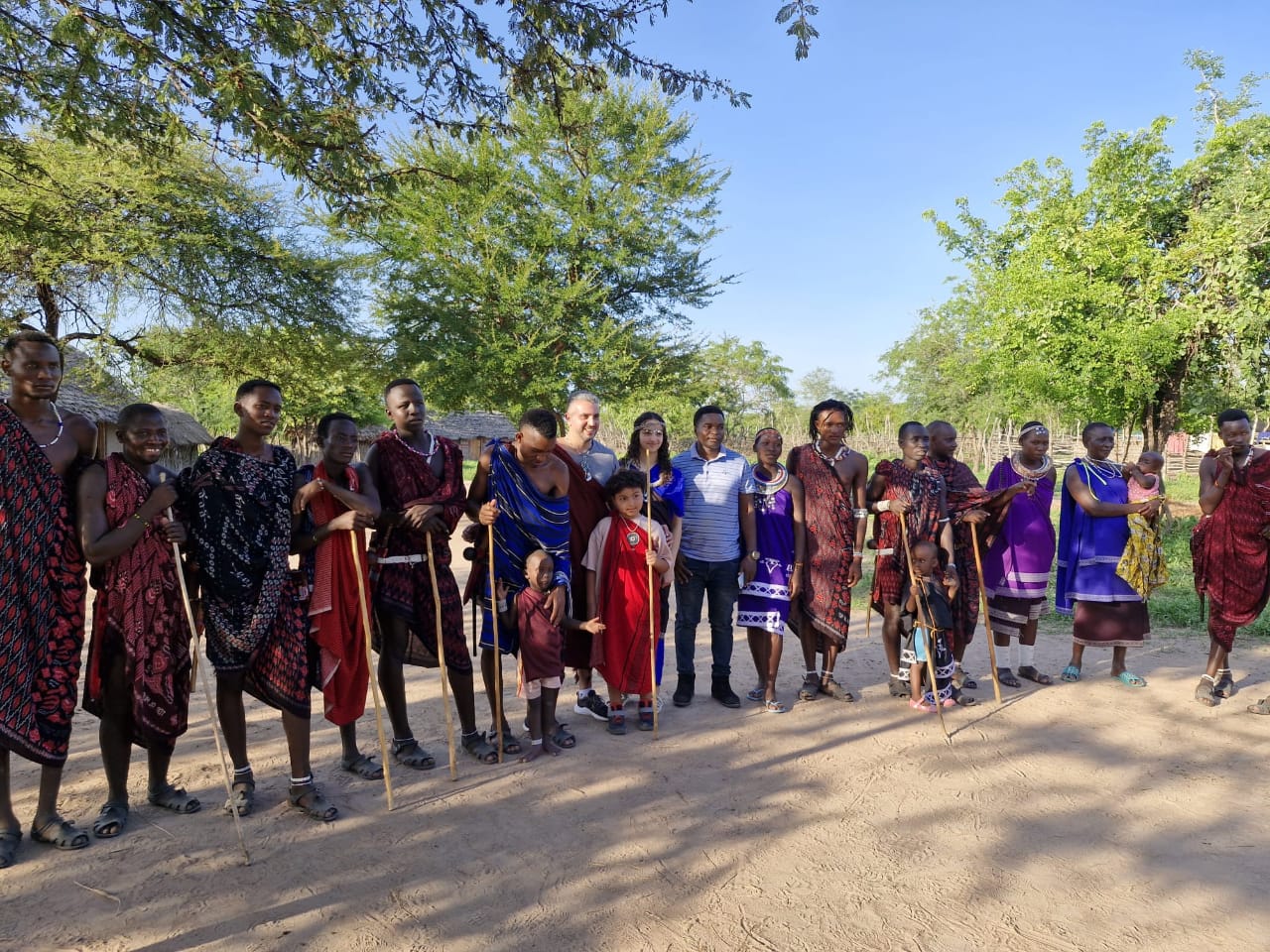Respectful Traveler: Essential Tanzanian Customs & Etiquette



Respectful Traveler: Essential Tanzanian Customs & Etiquette
You’ve booked your dream trip to Tanzania—the safaris, the beaches, the mountains! You’re excited to immerse yourself in the incredible landscapes and vibrant culture. But as you pack your bags and plan your itinerary, there’s another crucial element to consider: how to travel respectfully and make a positive impact on the communities you visit. Tanzania is a country proud of its heritage and traditions, and understanding and respecting local customs isn’t just polite; it’s essential for a meaningful and enriching travel experience.
Let’s explore the essential Tanzanian customs and etiquette that will help you connect with locals and leave a positive footprint.
More Than Just Sightseeing: Traveling with Cultural Awareness
Responsible travel is more than just minimizing your environmental impact. It’s about engaging with the local culture in a way that is both authentic and respectful. By taking the time to learn and adhere to Tanzanian customs, you show genuine appreciation for the people and their way of life. This opens doors to warmer interactions, deeper connections, and a far more enriching travel experience than simply observing at a distance.
 Tourists with locals at a cooking class
Tourists with locals at a cooking class
Greetings and Interactions: The Foundation of Connection
Just like everywhere else, in Tanzania, greetings are important and are often more than just a quick “hello.” Taking the time for a proper greeting is a sign of respect.
- ‘Mambo’ and ‘Poa’. Informal and common among younger people. “Mambo” means “How are you?” and “Poa” (POH-ah) means “Fine.”
- ‘Habari’ and ‘Mzuri’. More formal—“Habari” means “How are you?” and “Mzuri” (M-ZOO-ree) means “Good.”
- ‘Shikamoo’ and ‘Marahaba’. A highly respectful greeting for elders or authorities. “Shikamoo” literally means “I hold your feet.” The proper response is “Marahaba” (MAH-rah-HA-bah), meaning “I welcome you.”
- Handshakes. Use a gentle grip with your right hand and hold the handshake a bit longer than you might at home.
- Eye Contact. Acceptable in moderation; avoid staring, which can feel confrontational.
- Using Your Right Hand. The right hand is considered “clean” for handshakes, exchanges, and eating; reserve the left for personal tasks.
Personal Experience: On my first visit, I greeted an elder vendor with “Shikamoo.” Her face lit up, she replied “Marahaba,” and we shared a moment of genuine cultural exchange.
 Hellen in Wonderlust having a genuinely respectful and happy interaction with locals
Hellen in Wonderlust having a genuinely respectful and happy interaction with locals
Dressing with Respect: Mindful Attire
Tanzania is predominantly Muslim along the coast and in Zanzibar. Modest dress shows respect:
- For Women: Cover shoulders and knees; opt for loose-fitting clothes outside resorts or beaches.
- For Men: Wear trousers or longer shorts in towns and villages, especially at religious sites.
- Religious Sites (Mosques & Churches):
- Mosques: Women cover their heads with a scarf and wear long sleeves and trousers; men wear long trousers. Remove shoes before entering.
- Churches: Modest attire is generally sufficient; remove hats indoors.
Cultural Sensitivities: Navigating Local Norms
- Photography: Always ask permission before photographing people, especially children. Some may request payment for posed photos.
- Bargaining: Common in markets—haggle with a smile and friendly attitude. Know when to walk away.
- Public Displays of Affection: Generally frowned upon outside tourist zones—keep it discreet.
- Personal Questions: Avoid inquiries about income, religion, or relationships on first meeting.
- ‘Pole pole’ (Slowly, Slowly): Embrace the relaxed pace—patience goes a long way.
- Children: Be cautious about giving gifts or money directly to children; consider donating to local schools or community projects instead.
- Eating with Hands: Use only your right hand for dishes like ugali.

Engaging with Locals: Building Bridges
- Learn Swahili Phrases: “Asante” (Thank you), “Tafadhali” (Please), “Samahani” (Excuse me/Sorry).
- Be Genuinely Curious: Ask about local traditions and daily life.
- Listen More Than You Speak: Show respect by listening attentively.
- Support Local Businesses: Eat at local cafés, buy artisan crafts, hire community guides.
- Be Open-Minded: Welcome different perspectives and learn from them.

Leaving a Positive Footprint: Responsible Tourism in Action
Respectful travel is an active choice. By being mindful of your behavior, supporting local businesses and minimizing your environmental impact, you contribute to the sustainability of tourism in Tanzania.
- Minimize Plastic Usage. Carry a reusable water bottle and avoid single-use plastics. Note that plastic bags are banned in Tanzania (source).
- Conserve Water & Energy. Be mindful of your consumption, especially in areas where resources are scarce.
- Dispose of Trash Responsibly. Leave no trace—use designated bins or pack out your waste.
- Support Conservation Efforts. Consider visiting national parks and supporting organizations working to protect Tanzania’s wildlife and natural resources.
 Locals and tourists mobilized by Elewana Collection participating in a beach clean-up, Zanzibar.
Locals and tourists mobilized by Elewana Collection participating in a beach clean-up, Zanzibar.
Your Journey of Respect Starts Now!
Traveling through Tanzania with an open heart benefits both you and the communities you visit. By embracing these customs and etiquette tips, you’ll be welcomed with warmer smiles, forge deeper connections, and enjoy a truly authentic experience.
Tags for this post
React to this article
Enjoyed this article?
Share it with your friends!
You might also like

Decoding ‘Mzungu’: Unpacking Nicknames, Local Interactions & Navigating Attention in Tanzania (A Guide to Authentic Connection)
Being called Mzungu is a universal experience for visitors to Tanzania. This guide gives you the context and simple phrases to move past the nickname, manage constant attention without frustration, and open the door to more meaningful interactions.

Beyond the Shutter: Photography Ethics & Wildlife Etiquette in Tanzania (Capturing Beauty Responsibly & Respecting the Wild)
You’ve journeyed to the heart of Tanzania, armed with your camera, ready to immortalize the majestic lion, the sweeping plains, and the vibrant culture. The dream of capturing that ‘perfect shot’ is powerful, a desire to bottle the magic of the moment forever. But as photographers and travelers in this pristine wilderness, we carry a profound responsibility. Our lens has the power to both celebrate and inadvertently harm. This guide delves into photography ethics and wildlife etiquette in Tanzania, combining essential technical tips with critical responsible tourism principles. Let’s explore how to capture Tanzania’s breathtaking beauty responsibly, ensuring your pursuit of the perfect photograph never comes at the cost of disturbing the incredible wildlife you’ve traveled so far to admire.

Heartbeats of the Maasai: A Day Living with Tanzania’s Heart (An Authentic Cultural Immersion in Maasai Life)
As the first honey-gold light spills across the savanna, you'll wake not to an alarm, but to the low murmurs of mothers singing blessings over their children. This is no cultural performance—it's raw, unfiltered life among the last great nomadic warriors of East Africa.

Safari Etiquette: Unwritten Rules for an Unforgettable & Respectful Wildlife Encounter
Master the essential unwritten rules of safari etiquette to ensure a respectful, safe and unforgettable wildlife experience in Tanzania.
